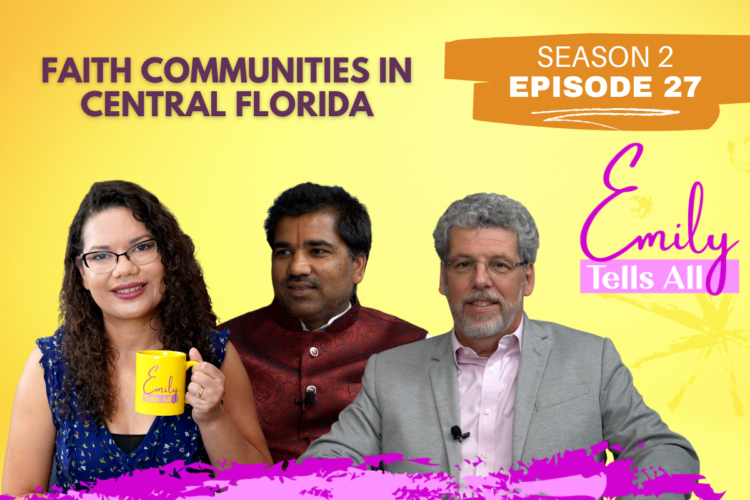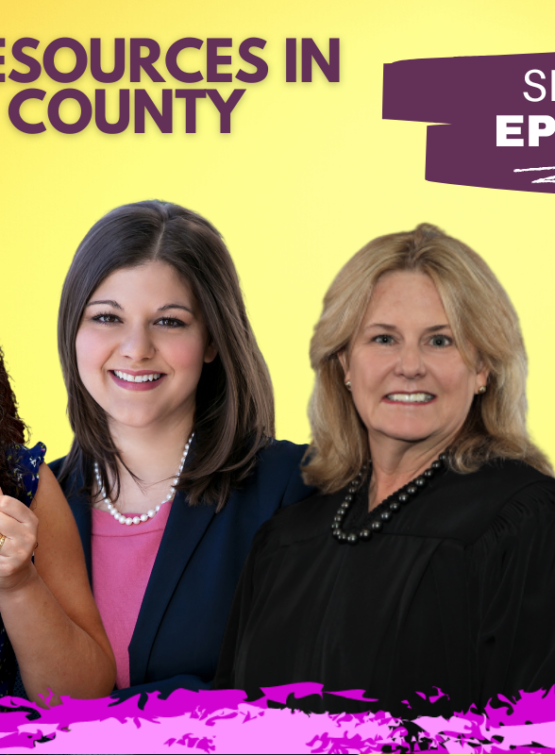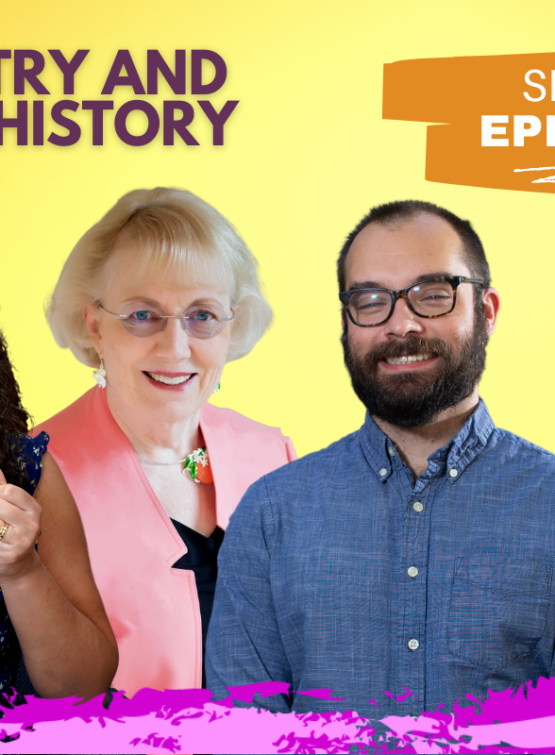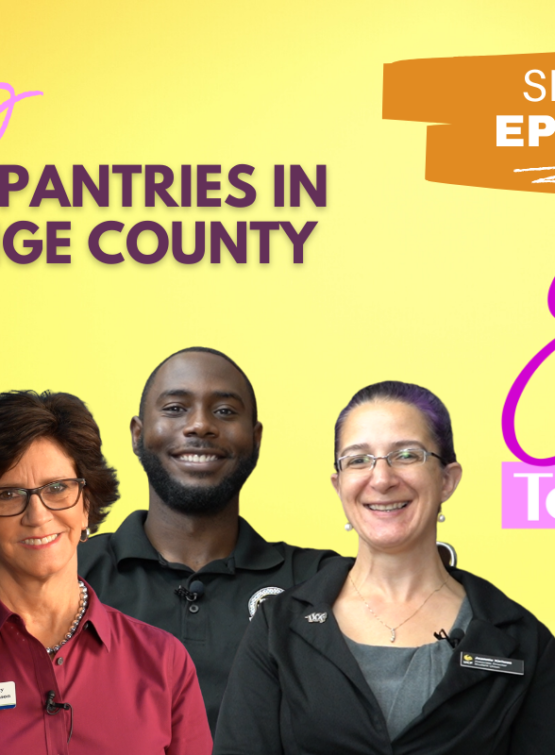AIR DATE JULY 7, 2022
Title: Faith Communities in Central Florida
Emily speaks with leaders of various faith traditions in central Florida and explores their core beliefs and practices in this two-episode special. Part one covers Hinduism and Judaism.
Guests and Locations
Interfaith Council of Central Florida, Chair – Rabbi David Kay
Hindu Society of Central Florida, Priest – Acharya Ashok Shukla
Faith Can Be a Critical Component of Life in Central Florida
Religious freedom in the United States is one of the reasons why our country is such a fascinating melting pot of ideas and cultures. A person’s faith becomes an integral part of who they are.
Here in Central Florida, people can practice their beliefs in several ways. I recently spoke with Shri Ashok Shukla and Rabbi David Kay about their perspectives on the traditions, rituals, and other practices that make faith a personal experience.
Rabbit Kay currently chairs the Interfaith Council of Central Florida. He says that the Dallas principle had a profound influence on his life. “It’s the idea that there are 10,000 doors, one destination, and that all of us are seeking something greater than ourselves,” he told me. “We’re each doing it in our own way, on our own path.”
Shukla serves as a senior priest at the Hindu Society of Central Florida. He told me that the commonality between his faith and others is there for all to see. “In the Veda, it says to pray to God through nature,” he told me. “Earth, fire, space, air – they are like a connector to us.” He compared nature to mediators like Jesus and the Prophet Muhammad (PBUH).
Peace and Justice Are Central Themes in All Religions
Although history shows us that people have changed religious philosophies to support their own political or socioeconomic agendas, the core tenants of faith and spirituality are about making peace with the world and others.
“The [Sanskrit] shlokas said that non-violence is the supreme religion,” Shukla told me. “You know, to protect the innocent, protect the good people.”
“Peace and justice are foundational concepts in Judaism,” Rabbi Kay said. “Every day, three times a day traditionally, is Jewish prayer. The central prayer of every service, whether one is praying with a congregation or individually, includes a prayer for peace.”
Shukla adds that people should seek the answer to the question, “Who am I?” “We should always know the soul and body,” he said. “Do the good things.”
How Does the Interfaith Council Shape Ideas?
Rabbi Kay said that the Interfaith Council of Central Florida is “probably” one of the quietest forces for change in the community. He’s been involved with the organization since 2004.
“I believe we have eight general faith traditions represented,” he told me. “We also have a seat at the table for the Central Florida Freethought community – people who don’t subscribe to a particular faith, but who have a worldview that promotes the same principles as the faith traditions.”
Humans tend to generate more dissent than openness when people have different perspectives or opinions. The idea of the Interfaith Council is to embrace differences, even when they are societal or theological. “We look for that common ground,” said Rabbi Kay. “At the same time, we don’t shy away from the difficult conversations and issues.”
By knowing each other, having meals together, and establishing friendships, meaningful and constructive conversations encourage everyone to grow.
Anyone wanting to know more about Hinduism, Judaism, or another faith is invited to visit the temple, synagogue, or another religious building near their home. More information about the Interfaith Council of Central Florida is available on their website at https://interfaithfl.org.



